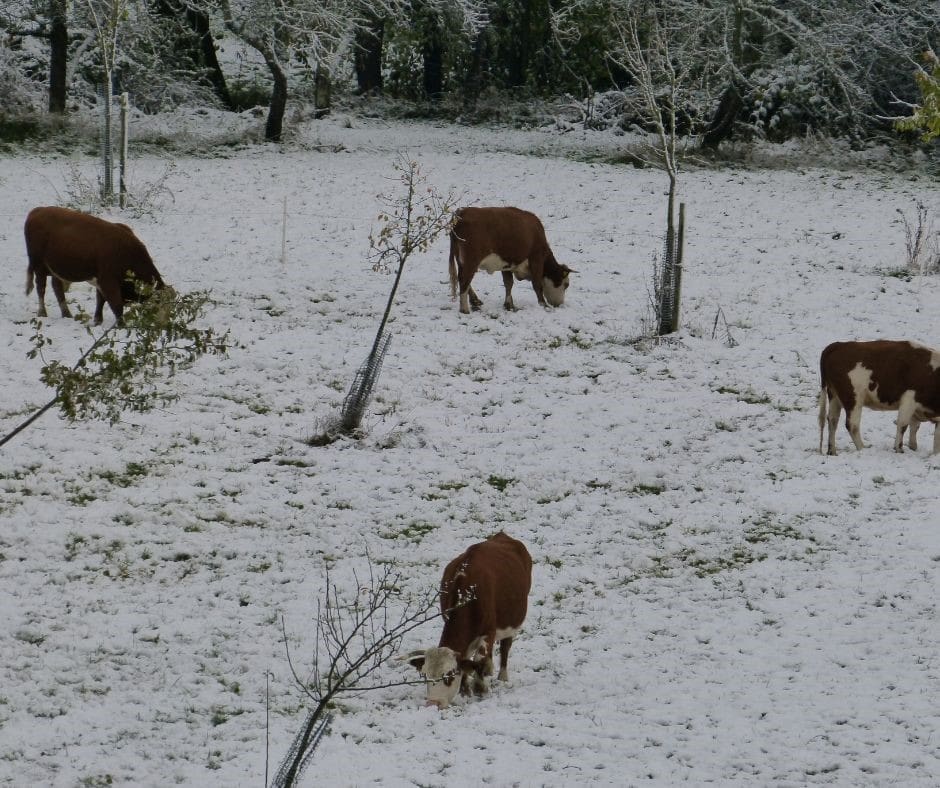To keep cows productive during winter, it’s important to check the nutrient levels in their feed, especially protein, which is often overlooked. Since this growing season was tough, adding protein to the feed could help your herd stay healthy through winter. Although protein supplements can be expensive, high-quality feed will benefit your cows in the long run.
Low protein levels affect rumen microbes, which need nitrogen to properly digest forage. When cows get the right nutrients, they stay healthier and maintain good body condition. This also leads to better-performing offspring, with steers fetching higher prices at slaughter and heifers showing better pregnancy rates.
Testing winter feed for protein levels is key before purchasing supplements. If a deficiency is found, explore ways to boost protein. Protein needs depend on the cow’s size, pregnancy stage, and lactation. For example, a 1,200-pound cow in late pregnancy needs about 1.7 pounds of protein per day from her feed.













